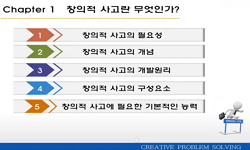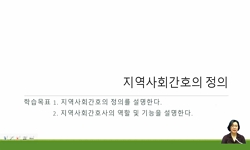Purpose: The purpose of this study was to identify effect of visiting nursing simulationbased training for community nursing. Methods: Participants for this study were 56 nursing college students in Busan. Data were collected and measured for the ge...
http://chineseinput.net/에서 pinyin(병음)방식으로 중국어를 변환할 수 있습니다.
변환된 중국어를 복사하여 사용하시면 됩니다.
- 中文 을 입력하시려면 zhongwen을 입력하시고 space를누르시면됩니다.
- 北京 을 입력하시려면 beijing을 입력하시고 space를 누르시면 됩니다.
https://www.riss.kr/link?id=A102737777
- 저자
- 발행기관
- 학술지명
- 권호사항
-
발행연도
2016
-
작성언어
Korean
- 주제어
-
등재정보
KCI등재
-
자료형태
학술저널
-
수록면
21-35(15쪽)
- 제공처
-
0
상세조회 -
0
다운로드
부가정보
다국어 초록 (Multilingual Abstract)
Purpose: The purpose of this study was to identify effect of visiting nursing simulationbased training for community nursing.
Methods: Participants for this study were 56 nursing college students in Busan. Data were collected and measured for the general characteristics, students’ responses regarding simulation experience, students’ self-assessment, self-confidence, and problem solving ability.
Results: In nursing college students, the scenario experience in community - based nursing simulation training was the most lacking communication area with the subject, so it was necessary to supplement it. The experience of the visiting nursing simulation scenario showed satisfactory results in all areas. The confidence of the nursing college students after learning the simulation training was 7.6 points out of ten. As a result of comparing the degree of problem solving ability before and after the simulation training, the degree of problem solving ability of the nursing college students after the training was increased compared to before the simulation training.
Conclusion: Simulation training before clinical practice contributes to improvement of nursing assessment, performance, confidence and problem solving ability. Through simulation training, students will be able to provide qualitative nursing care and coping with problems from an integrated perspective.
목차 (Table of Contents)
- ABSTRACT
- I. 서론
- 1. 연구의 필요성
- 2. 연구목적
- Ⅱ. 연구방법
- ABSTRACT
- I. 서론
- 1. 연구의 필요성
- 2. 연구목적
- Ⅱ. 연구방법
- 1. 연구 설계
- 2. 연구 대상
- 3. 연구도구
- 4. 연구 진행 절차
- 5. 자료 수집
- 6. 자료 분석
- 7. 윤리적 고려
- Ⅲ. 연구결과
- 1. 대상자의 특성
- 2. 시나리오 경험에 대한 반응
- 3. 학생 자가평가
- 4. 성찰을 통한 방문간호 대상자의 안전을 위한개선 노력
- 5. 학습에 대한 자신감
- 6. 문제해결능력
- Ⅳ. 논 의
- 1. 지역사회 기반 방문간호 시뮬레이션시나리오 경험에 대한 반응
- 2. 지역사회 기반 방문간호 시뮬레이션실습교육 후 학생 자가평가
- 3. 지역사회 기반 방문간호 시뮬레이션실습교육 후 학습에 대한 자신감
- 4. 지역사회 기반 방문간호 시뮬레이션실습교육 전후의 문제해결능력 정도
- Ⅴ. 결론 및 제언
- 참고문헌
동일학술지(권/호) 다른 논문
-
감각장애를 가진 입원 노인과의 의사소통 시뮬레이션 교육이 간호대 학생에게 미치는 효과
- 한국간호시뮬레이션학회
- 양은주
- 2016
- KCI등재
-
간호대학생의 시뮬레이션 활용한 성과기반 분만간호교육의 평가
- 한국간호시뮬레이션학회
- 김희숙
- 2016
- KCI등재
-
- 한국간호시뮬레이션학회
- 허나래
- 2016
- KCI등재
-
- 한국간호시뮬레이션학회
- 장희정
- 2016
- KCI등재





 코리아스칼라
코리아스칼라






